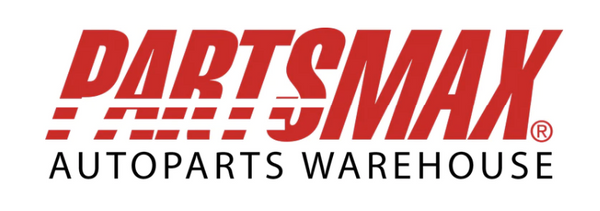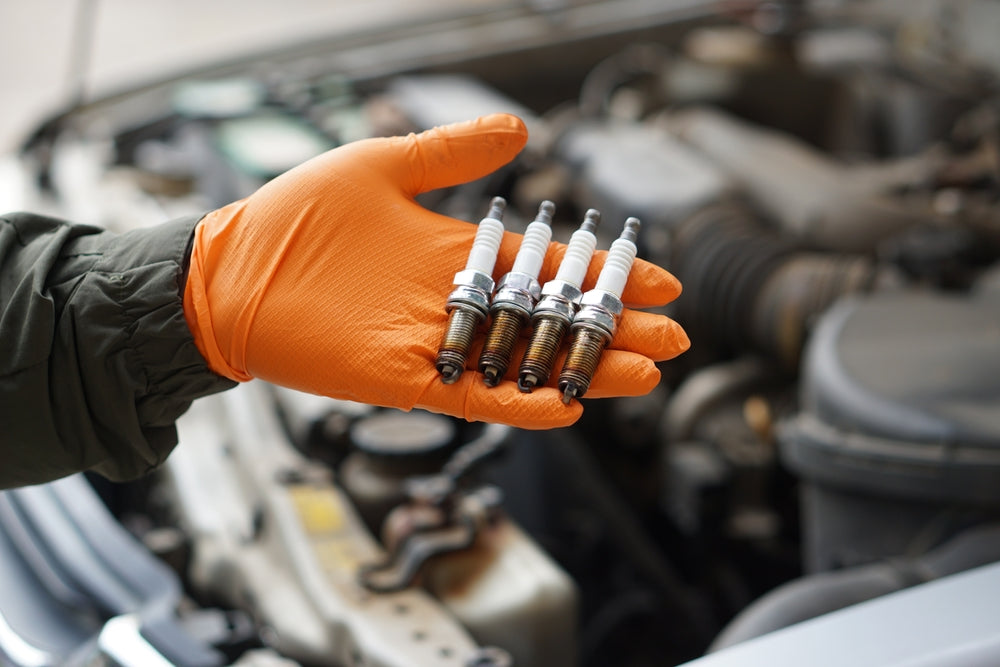The Great Spark Plug Debate Settled
Aftermarket vs OEM Spark Plugs: Why Your Choice Matters More Than You Think
The common misconception that "all spark plugs are basically the same" couldn't be further from the truth. Aftermarket spark plugs vs OEM represents one of the most significant decisions affecting engine performance, fuel economy, and long-term reliability. While OEM spark plugs meet basic requirements for mass production vehicles, aftermarket options often deliver measurable improvements in power, efficiency, and service life.
This comprehensive comparison settles the debate with real-world testing data, long-term analysis, and cost-benefit calculations. Whether you're a daily commuter seeking reliability or a performance enthusiast wanting maximum power, understanding these differences helps you make the optimal choice for your specific needs and budget.
The stakes extend beyond simple performance gains – spark plug selection impacts fuel economy, emission compliance, maintenance frequency, and total ownership costs over your vehicle's lifetime.
Understanding Spark Plug Technology: OEM vs Aftermarket Fundamentals
How OEM and Aftermarket Spark Plugs Differ in Design and Construction
OEM spark plugs prioritize cost-effectiveness and broad compatibility, while aftermarket plugs focus on performance optimization and advanced materials. Original equipment manufacturers design spark plugs to meet minimum performance requirements while keeping production costs low and ensuring emissions compliance across diverse operating conditions.
Aftermarket manufacturers invest heavily in research and development, utilizing premium materials like iridium and platinum alloys that exceed OEM specifications. These advanced designs optimize flame kernel formation, improve combustion efficiency, and extend service intervals through superior electrode durability.
Spark Plug Material Comparison: Copper vs Platinum vs Iridium
OEM spark plugs typically use copper cores with basic nickel alloy electrodes, lasting 30,000-50,000 miles, while aftermarket iridium plugs can exceed 100,000 miles. Copper provides adequate conductivity and heat dissipation for stock applications but wears quickly under normal operating conditions.
Aftermarket options leverage precious metals for superior performance. Platinum electrodes offer improved durability and consistent firing, while iridium provides the finest electrode tip possible, creating more efficient spark formation and extended service life. These materials justify higher initial costs through reduced replacement frequency and improved performance.
Performance Comparison: Real-World Testing Results
Do Aftermarket Spark Plugs Actually Add Power?
Dyno testing consistently shows aftermarket spark plugs deliver 2-5% horsepower gains and improved throttle response compared to worn OEM plugs. While peak power gains may seem modest, the improvements in combustion consistency and flame propagation create noticeable performance enhancement throughout the RPM range.
The most significant benefits appear in throttle response and acceleration consistency. Independent testing demonstrates improved 0-60 mph times and quarter-mile performance, particularly when OEM plugs have accumulated significant mileage. Fresh aftermarket plugs often outperform new OEM options due to superior electrode design and materials.
Fuel Economy Impact: Do Aftermarket Spark Plugs Improve MPG?
Quality aftermarket spark plugs typically improve fuel economy by 2-4% through enhanced combustion efficiency and more complete fuel burn. The precise electrode geometry and advanced materials create more consistent ignition timing and improved flame kernel development.
Long-term testing shows sustained fuel economy benefits, unlike OEM plugs that gradually lose efficiency as electrodes wear. The improved combustion also reduces harmful emissions and protects catalytic converters through cleaner burning characteristics.
Longevity and Durability Analysis
How Long Do OEM vs Aftermarket Plugs Last?
OEM spark plugs typically require replacement every 30,000-60,000 miles, while premium aftermarket iridium plugs can last 80,000-120,000 miles. Standard OEM copper plugs show significant electrode wear by 30,000 miles, leading to misfires, reduced fuel economy, and poor performance.
Aftermarket plugs using iridium or platinum electrodes maintain consistent performance throughout extended service intervals. The superior materials resist erosion and maintain proper gap settings, ensuring reliable ignition even under demanding conditions.
Durability Under Extreme Conditions
Aftermarket spark plugs excel in high-performance applications, withstanding extreme temperatures and pressures better than OEM alternatives. Track testing and racing applications consistently favor aftermarket options for their ability to maintain consistent performance under sustained high-RPM operation.
Cold weather starting also benefits from aftermarket designs, with improved electrode materials providing more reliable ignition at low temperatures. Hot climate operation shows similar advantages, with better heat dissipation and resistance to electrode melting.

Cost-Benefit Analysis: OEM vs Aftermarket Economics
Initial Cost vs Long-Term Value
While aftermarket spark plugs cost 2-3x more initially, extended service intervals and improved fuel economy often result in lower total ownership costs. OEM plugs require more frequent replacement, increasing both parts and labor expenses over time.
100,000-mile cost comparison:
- OEM plugs: 3-4 replacements at $8-15 per plug + labor
- Aftermarket iridium: 1-2 replacements at $20-40 per plug + labor
- Fuel economy savings: $200-500 over 100,000 miles
The improved fuel economy from aftermarket plugs often pays for the initial cost difference within 20,000-30,000 miles of driving.
Hidden Costs and Savings
Aftermarket spark plugs reduce maintenance frequency, saving labor costs and vehicle downtime. Extended service intervals mean fewer scheduled maintenance visits and reduced risk of being stranded due to spark plug failure.
Additional benefits include improved engine protection through cleaner combustion, reduced carbon buildup, and better catalyst protection – all contributing to lower long-term ownership costs.
Brand Analysis: Top Manufacturers Comparison
Leading OEM vs Aftermarket Options
NGK and Denso dominate both OEM and aftermarket markets, offering superior quality control and engineering compared to budget alternatives. These manufacturers supply original equipment to major automakers while producing premium aftermarket upgrades using advanced materials.
Top aftermarket recommendations:
- NGK Iridium IX: Excellent performance-to-price ratio
- Denso Iridium TT: Superior longevity and fuel economy
- Champion Iridium: Budget-friendly upgrade option
- E3 DiamondFire: Unique electrode design for specific applications
Professional mechanics consistently prefer NGK and Denso for reliability and consistent performance across diverse applications.
Vehicle-Specific Considerations
When to Choose OEM vs Aftermarket
Choose OEM spark plugs for budget-conscious maintenance on high-mileage vehicles where performance isn't a priority. OEM plugs work adequately for basic transportation needs and maintain warranty compliance on newer vehicles.
Choose aftermarket spark plugs for:
- Performance vehicles and modified engines
- Long-term cost optimization
- Extended service interval benefits
- Improved fuel economy priorities
- Cold weather reliability requirements
Heat Range and Compatibility
Always verify heat range compatibility when upgrading to aftermarket spark plugs, as incorrect heat ranges can cause engine damage. OEM specifications provide the baseline, but modified engines may require different heat ranges for optimal performance.
Forced induction applications particularly benefit from aftermarket options designed for boost pressure and elevated operating temperatures. Naturally aspirated performance engines also gain from heat range optimization unavailable in OEM applications.
Installation and Maintenance Considerations
Installation Differences
Aftermarket spark plugs install identically to OEM plugs but may require different gap settings or torque specifications. Most premium aftermarket plugs come pre-gapped, eliminating adjustment needs and reducing installation errors.
Professional installation ensures proper torque application and prevents thread damage. DIY installation requires torque wrench use and careful gap verification when specified by manufacturers.
Maintenance Requirements
Aftermarket spark plugs require less frequent inspection and replacement, reducing overall maintenance burden. Visual inspection every 30,000 miles helps verify continued performance, while OEM plugs may need replacement by this interval.
Signs indicating replacement include rough idle, poor acceleration, reduced fuel economy, or visible electrode wear during inspection.
Decision Framework: Making the Right Choice
Budget-Based Recommendations
For most drivers, mid-range aftermarket iridium plugs provide the best balance of performance, longevity, and value. The modest initial investment pays dividends through extended service life and improved efficiency.
Recommendation tiers:
- Budget conscious: Quality OEM replacements every 30,000 miles
- Balanced approach: NGK Iridium IX or Denso Iridium for 60,000+ mile service
- Performance focused: Premium iridium with specialized electrode designs
- Maximum performance: Competition-grade plugs for modified engines
Application-Based Selection
Daily drivers benefit most from extended-life aftermarket plugs that reduce maintenance frequency. Weekend performance vehicles justify premium options for maximum power and reliability during spirited driving.
Modified engines almost always require aftermarket solutions, as OEM plugs can't handle increased compression, boost pressure, or altered air-fuel ratios effectively.
The Verdict on OEM vs Aftermarket Spark Plugs
Aftermarket spark plugs vs OEM delivers a clear winner for most applications: quality aftermarket options provide superior performance, longevity, and long-term value despite higher initial costs. The combination of improved power delivery, extended service intervals, and enhanced fuel economy makes aftermarket plugs the smart choice for drivers prioritizing performance and cost-effectiveness.
OEM plugs remain viable for budget-conscious maintenance on high-mileage vehicles where maximum performance isn't essential. However, the modest investment in aftermarket upgrades typically pays for itself through reduced replacement frequency and improved efficiency.
The key lies in selecting quality aftermarket brands like NGK or Denso rather than budget alternatives that may not deliver promised benefits. Professional installation ensures optimal performance and prevents costly mistakes that could negate the advantages of premium spark plugs.
Get the Right Spark Plugs for Your Vehicle at PartsMax
Ready to upgrade your vehicle's performance with the right spark plugs? Whether you've decided on premium aftermarket options or need quality OEM replacements, PartsMax has the extensive inventory and expert knowledge to ensure you get exactly what your engine needs.
Why PartsMax is Your Best Choice for Spark Plugs:
- Comprehensive inventory of both OEM and aftermarket options from top manufacturers
- NGK, Denso, Champion, Bosch, and E3 spark plugs in stock
- Expert compatibility verification for your specific vehicle and application
- Competitive pricing on both OEM and aftermarket options
- Quality guarantee on all spark plug products
Get Expert Guidance: Still unsure whether aftermarket spark plugs vs OEM is right for your vehicle and driving needs? Our knowledgeable team understands the performance differences and can help you make the best choice based on your priorities, budget, and vehicle specifications. Call us at (305) 691-1313 for personalized recommendations.
Shop With Confidence: Browse our complete spark plug selection online with detailed compatibility information, or visit our Miami warehouse at 3401 NW 73rd ST, Miami, FL 33147 to see our inventory in person. Our team can explain the differences between options and help you understand the best choice for your specific application.
Complete Your Performance Upgrade: Looking to maximize the benefits of new spark plugs? Ask about complementary performance parts like cold air intakes, performance air filters, and fuel system cleaners that work together for optimal results.
Please note: PartsMax specializes in high-quality automotive parts sales. We recommend consulting with a qualified automotive technician for professional installation services and to ensure proper gap setting and torque specifications for optimal performance and engine protection.

